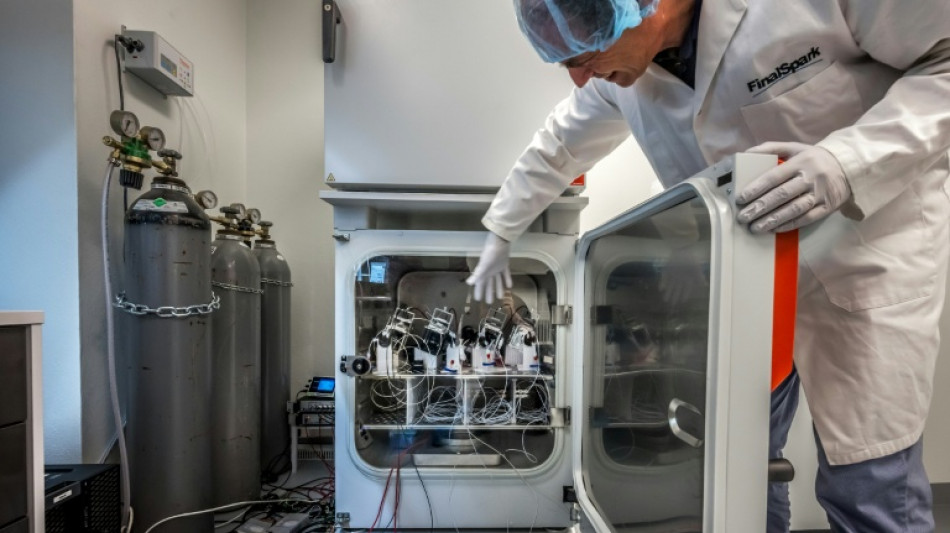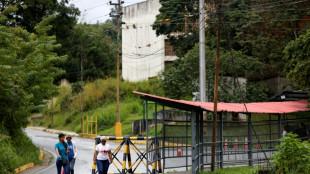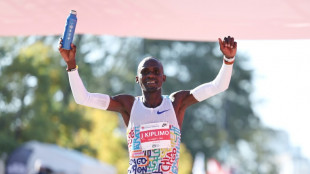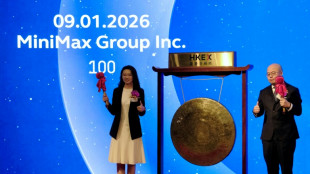
-
 Rams survive Panthers scare to advance in NFL playoffs
Rams survive Panthers scare to advance in NFL playoffs
-
Rallies across US after woman shot and killed by immigration agent

-
 Egypt dump out holders Ivory Coast as Nigeria set up AFCON semi with Morocco
Egypt dump out holders Ivory Coast as Nigeria set up AFCON semi with Morocco
-
Rosenior salutes 'outstanding' start to Chelsea reign

-
 Maduro loyalists stage modest rally as Venezuelan govt courts US
Maduro loyalists stage modest rally as Venezuelan govt courts US
-
Byrne late penalty fires Leinster into Champions Cup last 16 after 'ding-dong' battle

-
 Rosenior makes flying start as Chelsea rout Charlton in FA Cup
Rosenior makes flying start as Chelsea rout Charlton in FA Cup
-
Rallies across US against shooting of woman by immigration agent

-
 Salah closer to AFCON glory as Egypt dethrone champions Ivory Coast
Salah closer to AFCON glory as Egypt dethrone champions Ivory Coast
-
O'Neil ends 'crazy three days' with Strasbourg cup canter

-
 Mitchell leads Cavs over T-Wolves
Mitchell leads Cavs over T-Wolves
-
O'Neil ends 'crazy few days' with Strasbourg cup canter

-
 Argentina wildfire burns over 5,500 hectares: governor
Argentina wildfire burns over 5,500 hectares: governor
-
Byrne late penalty fires Leinster into Champions Cup last 16

-
 Roma beat Sassuolo to close in on Serie A leaders Inter
Roma beat Sassuolo to close in on Serie A leaders Inter
-
Villa's FA Cup win at Spurs leaves Frank on the brink

-
 Osimhen focused on Nigeria glory not scoring record
Osimhen focused on Nigeria glory not scoring record
-
Undav calls shots as Stuttgart thump Leverkusen

-
 Venezuelan prisoners smile to hear of Maduro's fall
Venezuelan prisoners smile to hear of Maduro's fall
-
Thousands of Irish, French farmers protest EU-Mercosur trade deal

-
 Kiplimo captures third straight world cross country title
Kiplimo captures third straight world cross country title
-
Osimhen leads Nigeria past Algeria into AFCON semi-finals

-
 US urges fresh talks between Syria govt, Kurds after deadly clashes
US urges fresh talks between Syria govt, Kurds after deadly clashes
-
Weekend of US protests after woman killed by immigration agent

-
 Monaco cling on with 10 men to avoid French Cup shock
Monaco cling on with 10 men to avoid French Cup shock
-
Rooney close to tears as brother masterminds FA Cup history

-
 Semenyo scores on Man City debut in 10-goal rout of Exeter
Semenyo scores on Man City debut in 10-goal rout of Exeter
-
Villarreal sink Alaves to stay in La Liga hunt

-
 Bristol, Glasgow reach Champions Cup last 16
Bristol, Glasgow reach Champions Cup last 16
-
Freiburg beat 10-man Hamburg to climb to eighth in the Bundesliga

-
 Venezuela loyalists to rally one week after Maduro's capture
Venezuela loyalists to rally one week after Maduro's capture
-
Syrian authorities transferring Kurdish fighters from Aleppo to northeast

-
 Football: Five memorable FA Cup upsets
Football: Five memorable FA Cup upsets
-
Odermatt warms up for Winter Games with Adelboden giant slalom win

-
 Benin showcases culture with Vodun Days
Benin showcases culture with Vodun Days
-
Iran crackdown fears grow as protests persist

-
 Odermatt wins Adelboden giant slalom for sixth World Cup success of season
Odermatt wins Adelboden giant slalom for sixth World Cup success of season
-
Holders Crystal Palace stunned by Macclesfield in biggest ever FA Cup shock

-
 Odermatt wins Abelboden giant slalom for sixth World Cup success of season
Odermatt wins Abelboden giant slalom for sixth World Cup success of season
-
Poland reach United Cup final despite Swiatek loss to Gauff

-
 India's Gill calls it 'destiny' after shock T20 World Cup snub
India's Gill calls it 'destiny' after shock T20 World Cup snub
-
'Driven' Vonn storms to 84th World Cup win in Austrian downhill

-
 Syrian army says stopping Aleppo operations, but Kurds deny fighting over
Syrian army says stopping Aleppo operations, but Kurds deny fighting over
-
Thousands of Irish farmers protest EU-Mercosur trade deal

-
 Vonn storms to 84th World Cup win in Austrian downhill
Vonn storms to 84th World Cup win in Austrian downhill
-
Anger over fatal Minneapolis shooting fuels US protests

-
 New rallies erupt in Iran as crackdown fears grow
New rallies erupt in Iran as crackdown fears grow
-
Real Madrid not 'kamikaze' with Mbappe health: Alonso

-
 South Africa defends naval drills with Iran, Russia as 'essential'
South Africa defends naval drills with Iran, Russia as 'essential'
-
Alcaraz beats Sinner in sold-out South Korea exhibition match


'Wetware': Scientists use human mini-brains to power computers
Inside a lab in the picturesque Swiss town of Vevey, a scientist gives tiny clumps of human brain cells the nutrient-rich fluid they need to stay alive.
It is vital these mini-brains remain healthy, because they are serving as rudimentary computer processors -- and unlike your laptop, once they die, they cannot be rebooted.
This new field of research, called biocomputing or "wetware", aims to harness the evolutionarily honed yet still mysterious computing power of the human brain.
During a tour of Swiss start-up FinalSpark's lab, co-founder Fred Jordan told AFP he believes that processors using brain cells will one day replace the chips powering the artificial intelligence boom.
The supercomputers behind AI tools like ChatGPT currently use silicon semiconductors to simulate the neurons and networks of the human brain.
"Instead of trying to mimic, let's use the real thing," Jordan said.
Among other potential advantages, biocomputing could help address the skyrocketing energy demands of AI, which have already threatened climate emissions targets and led some tech giants to resort to nuclear power.
"Biological neurons are one million times more energy efficient than artificial neurons," Jordan said. They can also be endlessly reproduced in the lab, unlike the massively in-demand AI chips made by companies like behemoth Nvidia.
But for now, wetware's computing power is a very long way from competing with the hardware that runs the world.
And another question lingers: could these tiny brains become conscious?
- Brain power -
To make its "bioprocessors," FinalSpark first purchases stem cells. These cells, which were originally human skin cells from anonymous human donors, can become any cell in the body.
FinalSpark's scientists then turn them into neurons, which are collected into millimetre-wide clumps called brain organoids.
They are around the size of the brain of a fruit fly larvae, Jordan said.
Electrodes are attached to the organoids in the lab, which allow the scientists to "spy on their internal discussion," he explained.
The scientists can also stimulate the organoids with a small electric current. Whether they respond with a spike in activity -- or not -- is roughly the equivalent of the ones or zeroes in traditional computing.
Ten universities around the world are conducting experiments using FinalSpark's organoids -- the small company's website even has a live feed of the neurons at work.
Benjamin Ward-Cherrier, a researcher at the University of Bristol, used one of the organoids as the brain of a simple robot that managed to distinguish between different braille letters.
There are many challenges, including encoding the data in a way the organoid might understand -- then trying to interpret what the brain cells "spit out," he told AFP.
"Working with robots is very easy by comparison," Ward-Cherrier said with a laugh.
"There's also the fact that they are living cells -- and that means that they do die," he added.
Indeed, Ward-Cherrier was halfway through an experiment when the organoid died and his team had to start over. FinalSpark says the organoids live for up to six months.
At Johns Hopkins University in the United States, researcher Lena Smirnova is using similar organoids to study brain conditions such as autism and Alzheimer's disease in the hopes of finding new treatments.
Biocomputing is currently more "pie in the sky," unlike the "low-hanging fruit" use of the technology for biomedical research -- but that could change dramatically over the next 20 years, she told AFP.
- Do organoids dream of electric sheep? -
All the scientists AFP spoke to dismissed the idea that these tiny balls of cells in petri dishes were at risk of developing anything resembling consciousness.
Jordan acknowledged that "this is at the edge of philosophy," which is why FinalSpark collaborates with ethicists.
He also pointed out that the organoids -- which lack pain receptors -- have around 10,000 neurons, compared to a human brain's 100 billion.
However much about our brains, including how they create consciousness, remains a mystery.
That is why Ward-Cherrier hopes that -- beyond computer processing -- biocomputing will ultimately reveal more about how our brains work.
Back in the lab, Jordan opens the door of what looks like a big fridge containing 16 brain organoids in a tangle of tubes.
Lines suddenly start spiking on the screen next to the incubator, indicating significant neural activity.
The brain cells have no known way of sensing that their door has been opened, and the scientists have spent years trying to figure why this happens.
"We still don't understand how they detect the opening of the door," Jordan admitted.
U.Shaheen--SF-PST




